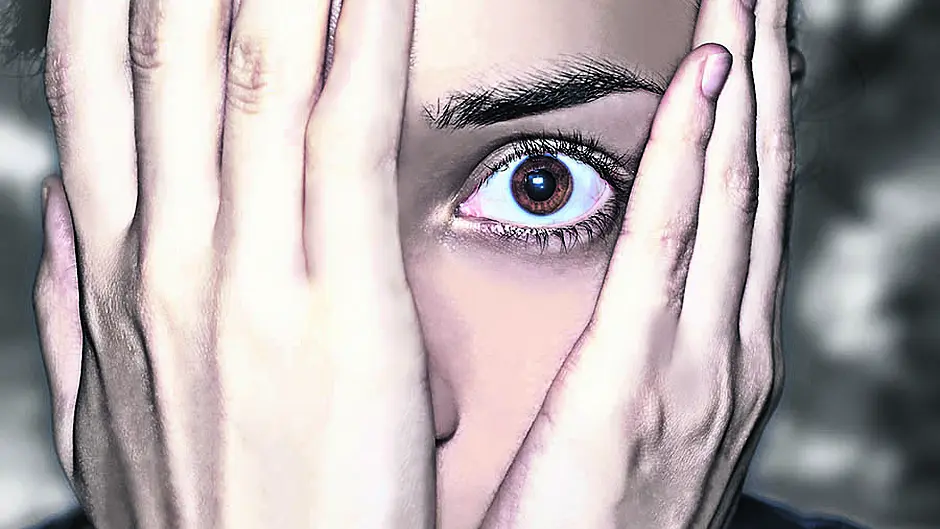In my last column, I looked at the problem of intrusive thoughts in OCD – unwanted thoughts that cause great distress
Your Mental Health with Linda Hamilton, Cognitive behavioural therapist
In my last column, I looked at the problem of intrusive thoughts in OCD – unwanted thoughts that cause great distress. Obsessive compulsive disorder is, as OCD expert Prof Paul Salkovskis often puts it, an unnecessary problem. Huge strides have been made in recent decades and we know what works and what doesn’t.
OCD-related intrusive thoughts can drive huge torment. They are often taboo thoughts, focusing on explicitly violent, sexual or socially unacceptable images. Other times, they may consist of recurring doubts about relationships (“Am I sure I’m still attracted to my partner?”), sexual orientation (“how do I know I’m not gay?”), suicide (“I’m happy so why does the thought of suicide keep popping into my head?”), religion (“what if I start yelling obscenities in church”) – the list is endless.
The actual content of the thoughts is not important. A person obsessing about, say, their sexual orientation might think all would be well if they got the guarantee they want, but that’s not true. OCD is the doubting disease; old doubts can fade away only to be replaced by new ones unless you tackle your intolerance of uncertainty.
Pure O
The term pure O is often used to describe cases where the person obsesses over intrusive thoughts but does not perform obvious visible compulsions. In reality, there are always subtle compulsions (reassurance-seeking, silently praying or reciting mantras, desperately avoiding situations that might trigger intrusive thoughts, and so on). These safety behaviours are counter-productive and keep the OCD cycle going, so your goal must be to stand up to the anxiety. Stop checking, stop analysing, stop looking for “proof” – tolerate the discomfort and wean yourself off the old methods that have kept you stuck.
Psychoeducation is hugely important. In particular, this form of OCD is characterised by misguided notions about the importance and power of thoughts. People tend to think they should be able to control their thoughts. In reality, thoughts pop into our heads and we cannot prevent this. Indeed, the more you try to not think of a thought or image, the more likely you are to do so. To illustrate this point: for the next minute, try not to think of a white polar bear.
No prizes for guessing what everyone’s been picturing for the last 60 seconds.
You might think intrusive thoughts reveal your character or inner self, that these thoughts indicate your true feelings. Again, that’s completely untrue. Often, the person obsesses over thoughts that contradict their innermost values; the loving parent obsesses over harming their child, the religious person is tortured by blasphemous thoughts, and so on.
The simple reality is a thought is just a thought and everyone has experienced weird, ridiculous thoughts.
Unfortunately, people tend to manage their intrusive thoughts through avoidance, thus confirming the illusion that their thoughts are dangerous and important. A person who is terrified they will stab a loved one might sit on their hands while having dinner with their family, or avoid violent movies, books and news programmes.
With homosexual OCD/HOCD (which is rarely driven by homophobia, by the way, but by intolerance of any kind of uncertainty and the fear one is living a lie), the person might avoid watching TV programmes featuring gay characters, or places featuring rainbow flags, or same-sex friends, or countless other situations that trigger the thoughts.
Exposure
Instead of avoidance, you must learn to gradually expose yourself to your fears. For example, a mother who avoids hugging her children because she fears she will choke them, should aim to regularly hug her children. Exposure (sometimes called exposure and response prevention, or ERP) can seem scary, but it can also be exhilarating. The importance of exposure cannot be stressed enough. It changes lives.
Just be careful not to confuse exposure with compulsions. With HOCD, some people watch gay pornography as a “test” to see if they are gay. That’s not exposing yourself to your fears – it’s a compulsion, a desperate attempt to get the certainty that will never come.
Finally, know that recovery means not ridding yourself of intrusive thoughts, but ridding them of their power. That means accepting them. Don’t run from them; learn to laugh at them and reclaim your life.
Linda Hamilton is a Kinsale-based cognitive behavioural therapist.
If you would like to get in touch with her, call 086-3300807
For more information, go to www.kinsalecbt.com
Like and follow ‘ KinsaleCBT’ on Facebook







